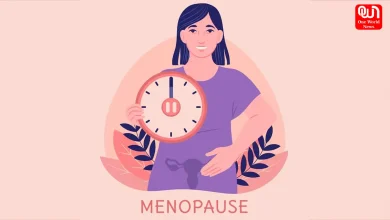What Is Disease X? Expert Says It’s 20 Times More Fatal Than COVID-19, Know In Detail
Disease X, while still a hypothetical danger, serves as a stark reminder of the unpredictable nature of infectious illnesses and the need for international preparedness.
Unraveling the Mystery of Disease X: A Potential Threat Beyond COVID-19
In the case of infectious diseases, there is a period that has attracted the attention and puzzled scholars across the world—Disease X. Sometimes referred to as an unknown agent with pandemic potential, Disease X embodies a scenario that scientists and healthcare professionals are preparing for, detecting, and responding to emerging global health threats. Since the discussions on Disease X gained ground, officials emphasised that it can be twenty times more lethal than COVID-19, pointing to the relevance of vigilance and being prepared. In this piece, we’ll have a closer look at the info on Disease X, looking at what it is, why it poses such a major threat, and how the world is preparing to meet this potential danger.
Read More – Here are the mos searched diseases on Google in 2023
Understanding Disease X:
Definition:
Disease X is not an identified pathogen but is a placeholder term used by health personnel to refer to a previously unknown infectious disease that would initiate a future pandemic.
Recognition:
The term Disease X has become known since WHO covered it in its list of priority diseases for research and development in 2018. This list is continually updated to help guide worldwide preparedness efforts.
Read More –Health tips for women: Top 27 ways to prevent breast cancer
The Hypothetical Threat:
Unknown Origin:
Disease X is characterized by its unpredictability. It ought to emerge from zoonotic transmission, where an epidemic jumps from animals to human beings, much like how many infectious illnesses, inclusive of COVID-19, have originated.
Novel Characteristics:
What makes Disease X especially regarded is its capacity to show off novel traits, such as excessive transmissibility, intense illness, and resistance to present remedies or vaccines.
Comparative Risk of COVID-19:
Potential Severity:
Experts have warned that Disease X should surpass the severity of COVID-19. Some projections advocate it can be up to 20 times more fatal than the present-day pandemic, underscoring the need for robust preparedness measures.
Learning from COVID-19:
The reports and demanding situations confronted throughout the COVID-19 pandemic function provide precious instructions in information about the dynamics of an international fitness crisis. Disease X preparations draw on these lessons to decorate readiness and response strategies.
Preparedness and Research Efforts:
Global Collaboration:
Recognizing the potential chance posed via Disease X, international fitness corporations, governments, and researchers are participating to decorate preparedness. Sharing understanding, sources, and study findings is important in developing effective strategies to combat destiny pandemics.
Vaccine Development:
The fast improvement of COVID-19 vaccines has highlighted the importance of expediting vaccine studies and production in the face of rising illnesses. This momentum is being leveraged to create structures that can be adapted rapidly to deal with new pathogens.
Monitoring and Surveillance:
Early Detection:
Timely detection of rising infectious diseases is paramount to containing their spread. Enhanced tracking and surveillance systems are being mounted globally to come across unusual styles of infection and pick out capacity Disease X threats at an early stage.
Data Sharing:
Open and transparent sharing of facts and information amongst international locations and research establishments is crucial. Early caution systems depend upon actual-time statistics to assess the hazard degree and initiate suitable reaction measures.
One Health Approach:
Interconnected Health:
Disease X emphasizes the linkages between human, animal, and environmental health. The One Health approach recognizes the complex interplay of these factors and stresses collaboration across disciplines to address emerging diseases
Zoonotic Risk Reduction:
As many infectious illnesses have zoonotic origins, efforts to lessen the hazard of zoonotic transmission are being prioritized. This involves tracking and regulating interactions among people and animals to limit the capacity for spillover events.
Public Awareness and Education:
Community Engagement:
Public consciousness and training play a pivotal position in disease prevention and manipulation. Communities need to be informed approximately about the dangers, signs and symptoms, and preventive measures associated with capability pandemics to foster a collective response.
Communication Strategies:
Clear and powerful verbal exchange strategies are essential in disseminating correct statistics and dispelling incorrect information at some point of outbreaks. Building belief and understanding inside groups is vital for successful public health interventions.
We’re now on WhatsApp. Click to join.
As the world continues to grapple with the continued demanding situations of COVID-19, the lessons found out are shaping techniques to stand potential future pandemics. From better surveillance and vaccine improvement to worldwide collaboration and network engagement, the reaction to Disease X reflects a collective dedication to mitigating the effect of unknown infectious illnesses. In a global where health crises go beyond borders, the preparedness efforts in opposition to Disease X underscore the significance of team spirit, resilience, and non-stop innovation in safeguarding worldwide health.
Like this post?
Register at One World News to never miss out on videos, celeb interviews, and best reads.








